Chief Executive Officer (CEO) – Prof Sarah Mosoetsa
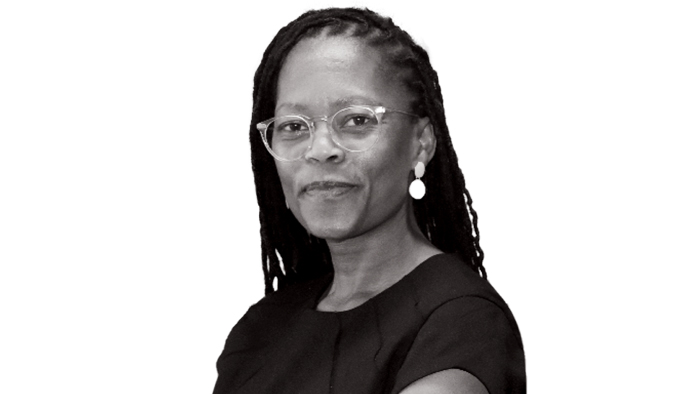
Prof. Mosoetsa was instrumental in establishing and setting up the National Institute for the Humanities and Social Sciences (NIHSS) in 2013 and held the position of CEO at the Institute from 2014. Prof. Mosoetsa holds a Doctorate in Sociology from the University of the Witwatersrand. She is the author of several publications, including, amongst others, Eating from one pot: dynamics of survival in poor South African households (Wits Press) and co-editor of Labour in the Global South: challenges and alternatives for workers (ILO), and co-editor of Precarious Labor in Global Perspective (Cambridge University Press). She has worked for various organisations, including the Society, Work and Politics Institute (SWOP), and the Development Bank of Southern Africa (DBSA). Prof. Mosoetsa sits on various boards and committees, inter alia, the National Minimum Wage Commission, the University of Venda Council and the Advisory Board for the Southern Centre for Inequality Studies. Prof. Mosoetsa is passionate about the humanities and social sciences in South Africa, the continent, and the globe, and their contribution to societies grappling with challenges of poverty and inequalities, economic transformation, and redress.
Deputy CEO (DCEO) for Research – Prof Leickness Simbayi
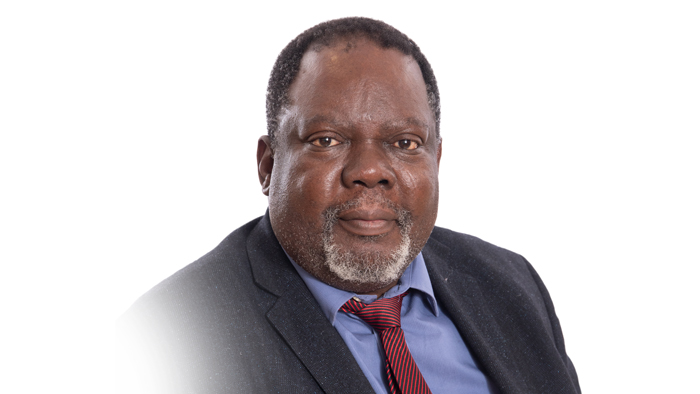
Professor Simbayi is the Acting Deputy Chief Executive Officer for Research (DCEO:R) of the Human Sciences Research Council (HSRC) of South Africa with effect from 1 June 2023 until 31 March 2024. He previously served as DCEO:R from 1 January 2016 until 31 May 2023, during which time he was also the Interim CEO from 1 April 2021 until 31 January 2023.
He is formerly the founding Executive Director of the HIV/AIDS, STIs and TB (HAST) research programme in the same organisation, a position which he held since its founding in July 2010 until 31 December 2015. He also served as the Executive Director of the Social Aspects of HIV/AIDS and Health (SAHA) programme from February 2008 June 2010. Prior to that he served as a Research Director in charge of the Behavioural and Social Aspects of HIV/AIDS Research Unit in SAHA, as well as the Regional Coordinator for Southern Africa of the Social Aspects of HIV/AIDS Research Alliance (SAHARA) since November 2001, and also as the Deputy Executive Director of the then SAHA research programme between July 2007 until June 2009.
Professor Simbayi holds a Doctor of Philosophy (D.Phil.) degree in Experimental Psychology from the University of Sussex in England, United Kingdom. He is also currently an Honorary Professor in the Department of Psychiatry and Mental Health at the University of Cape Town. He is a Member of Academy of Science of South Africa (ASSAf) and also a rated researcher by the National Research Foundation (NRF) of South Africa.
Before joining the HSRC, Professor Simbayi spent 15 years as an academic during which time he taught mainly courses in research methods and statistics in psychology, and biological psychology at both undergraduate and postgraduate levels at five different universities in Southern Africa, namely, Universities of Zambia, Bophuthatswana (now North West University, Mahikeng Campus), Port Elizabeth (now Nelson Mandela University, South Campus), Fort Hare, and Western Cape (UWC). He was Associate Professor and Head of Psychology Department at Fort Hare, and Associate Professor and then full Professor as well as Chairperson of the Department of Psychology at UWC.
During the past two decades at the HSRC, Professor Simbayi has mostly conducted his research in the area of social aspects of HIV/AIDS and sexually transmitted infections (STIs). In particular, his research has focused on second-generation HIV surveillance especially using biobehavioural surveys, HIV/AIDS-related stigma and discrimination, orphans and vulnerable children (OVC), determinants of HIV infection (such as poverty, alcohol and drug use, gender-based violence, sex in the presence of blood, multiple sexual partnerships, and male circumcision), and theory-based HIV social and behavioural risk reduction interventions including positive prevention which targets people living with HIV/AIDS who are aware of their status. Since the onset of COVID-19 in early 2020, he has also been undertaking biobehavioural survey research on national seroprevalence of COVID-19 antibodies.
Prof Simbayi has published over 150 scientific articles in mostly international peer-reviewed academic journals, 26 research reports, 15 abstracts, and 12 book chapters. He also co-edited a book entitled HIV/AIDS in South Africa 25 Years on: Psychosocial Perspectives which was published by Springer of New York in 2009. He has also presented more than 300 papers and posters at both local and international conferences.
Divisional Executive (DCES) – Prof Narnia Bohler-Muller
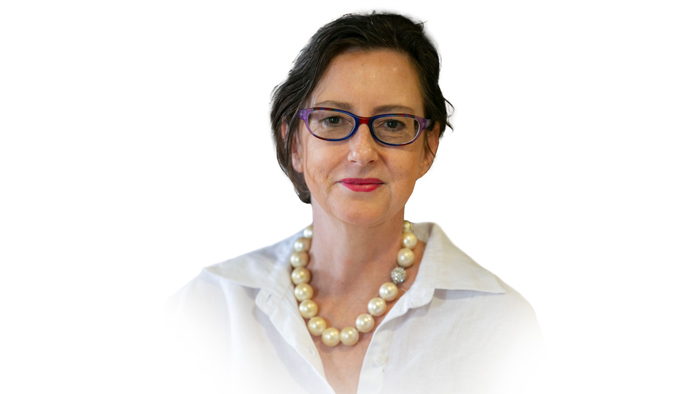
Professor Narnia Bohler-Muller is the Divisional Executive in the HSRC’s Developmental, Capable and Ethical State research division. She holds a Doctor of Laws (LLD) from the University of Pretoria and specialises in participatory democracy and social justice as well as gender equality and the fulfilment of socioeconomic rights.
Bohler-Muller was formerly a professor at Nelson Mandela University (then known as Nelson Mandela Metropolitan University) before she joined the Africa Institute of South Africa in 2011 as a research director. In 2012, she became the deputy executive director of the HSRC’s former Democracy, Governance and Service Delivery research division. Bohler-Muller was an adjunct professor of law, University of Fort Hare (2015-2020) and is currently a research associate with the Centre for Gender and Africa Studies, University of Free State. At the HSRC, she has led numerous large projects for the Department of Justice and Constitutional Development, the Department of Monitoring, Planning and Evaluation in the Presidency, the European Union Commission in South Africa, and the UK Commonwealth and Foreign Office. Bohler-Muller has also led a collaboration with the University of Johannesburg on the COVID-19 democracy survey, with five rounds of the survey conducted from April 2020 to November 2021. Before joining the HSRC, Bohler-Muller spent sixteen years as an academic, during which time she taught numerous courses in law and legal philosophy, beginning her career at the Port Elizabeth campus of Vista University. During the past decade, she has mostly conducted research in the area of human rights and social justice within the context of the COVID-19 pandemic as well as gender equality and socio-economic rights.
Bohler-Muller has published 49 scientific articles in local and international peer-reviewed academic journals, 6 books, 15 book chapters and 30 research reports. She has also presented more than 100 papers at local and international conferences, many of them as an invited keynote speaker. She is on the editorial board of one national and two international accredited journals, regularly conducts peer reviews for journals and writes book reviews. She is often called upon to assist with the National Research Foundation’s researcher ratings. Bohler-Muller has officially represented South Africa at international forums, including BRICS (Brazil, Russia, India, China, and South Africa economies), IBSA (India Brazil and South Africa dialogue), the W20 (Women20) and IORA (the Indian Ocean Rim Association). She has completed visiting research fellowships at Birkbeck University (London), Griffith University (Brisbane) and the BRICS Research Centre (Rio de Janeiro).
Group Executive (IC) – Prof Heidi Van Rooyen

Professor Heidi van Rooyen is the Group Executive of the Impact Centre at the Human Sciences Research Council in South Africa. Her 30-year professional career spans government, higher education, and the science council environments. Van Rooyen is a social scientist and clinical psychologist holding an honorary professorship from the University of the Witwatersrand, a member of the Academy of Science of South Africa and one of a few social scientists on the Ministerial Advisory Committee on Covid-19 in South Africa. She is an internationally recognised and accomplished scholar with a NRF B rating and over 140 publications, a Google Scholar index of 35 and a H-Index of 58 on Scopus. Her research has addressed HIV risks and vulnerabilities as well as the broader contexts and inequalities that shape this risk, the influence of sexual orientation and gender identity as social determinants of health, race and identity and the use of poetry/as/in/for research. Van Rooyen is a certified life coach who balances the demands of leadership, publishing and grant writing with regular walks, poetry, and cold-water swimming.
Divisional Executive (PHSB) – Prof Khangelani Zuma
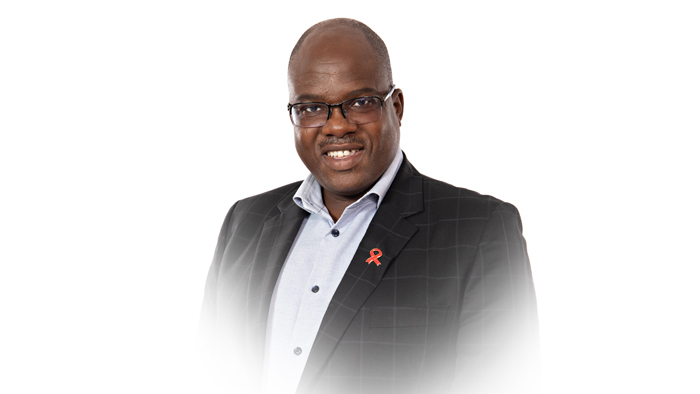
Professor Khangelani Zuma is the Divisional Executive in the Public Health, Societies and Belonging (PHSB) research division and head of biostatistics at the Human Sciences Research Council based in Pretoria. Zuma has over 12 years of experience as a statistician. He has been involved in large scale surveys and clinical trials as a statistician focusing on conceptualisation, design and implementation of these studies.
His expertise and research interest span survey design, complex data analyses, linear and non-linear mixed models, hierarchical Bayesian models, (correlated) survival data analyses, epidemiology: modelling infectious diseases data, HIV incidence estimation and monitoring and evaluation of HIV intervention programmes.
Zuma has also taught statistics at both undergraduate and postgraduate levels. His recent publications include authoring and co-authoring papers published in peer-reviewed journals in the areas of HIV/AIDS, sexually transmitted infections, migration and biostatistics. He has presented papers at both local and international conferences. He is currently the chair of the ministerial Health Data Advisory and Co-ordinating Committee and a member of the Statistics Council of Statistics South Africa.
Zuma is an Honorary Associate Professor of Biostatistics at the Wits University School of Public Health.
Divisional Executive (EEE) – Prof Sharlene Swartz
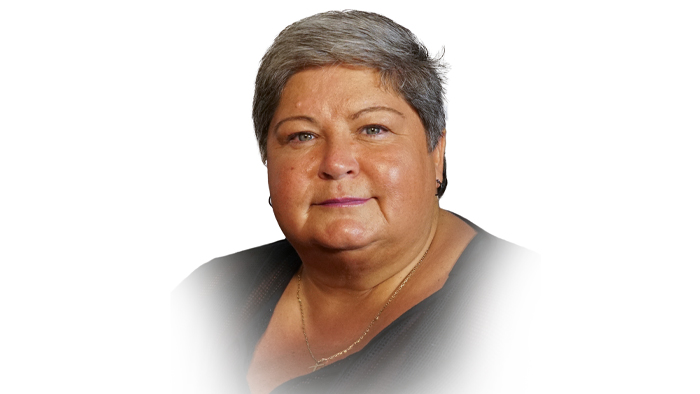
Professor Sharlene Swartz is the Divisional Executive in the Equitable Education and Economies (EEE) research division. She has been with the HSRC since 2008 and has held positions as the Executive Director in the Education and Skills Development programme and as a Research Director in the then Human and Social Development unit. A sociologist by training, she has been an adjunct Associate Professor of Sociology at the University of Cape Town (2012-2019) and is currently an adjunct Professor in Philosophy at the University of Fort Hare, South Africa (2019 to date).
Her research focuses on what she has termed ‘navigational capacities’ for the just inclusion of youth in societies in the Global South. She researches and writes extensively on transformative education, reimagined inclusive economic development, and decolonising and emancipatory practices in research. Swartz holds a PhD from the University of Cambridge, UK, a Master’s degree in Education from Harvard University, US, and undergraduate degrees from the University of the Witwatersrand (Life Sciences) and the University of Zululand (Philosophy), both in South Africa. Her doctoral thesis, in the sociology of education, considered how young people who live in poverty, understand, represent and enact morality.
Swartz is the Principal Investigator of a longitudinal research study The Imprint of Education, funded by the Mastercard Foundation, that investigates the ways in which higher education impacts the lives of first generation students, and how they in turn affect their worlds. Previous studies included young fathers, race and education, the role of education on alleviating poverty, and peer education. Before embarking on her graduate studies, she spent 12 years at a youth NGO where she pioneered peer-led social justice and life skills education programmes. Swartz has authored six books, edited a further five, has completed nearly seventy journal articles and book chapters, produced fourteen research reports, an ethnographic documentary and presented more than one hundred and twenty local and international invited lectures and conference papers, including a number of keynote addresses.
Authored books include Studying while black: Race, education and emancipation in South African universities (2018, HSRC Press with Mahali, Moletsane et al); Moral eyes: Youth and justice in Cameroon, Nigeria, Sierra Leone and South Africa (2018, HSRC Press with Nyamnjoh et al); Another country: Everyday social restitution (2016, Best Red); Old enough to know: Consulting children about sex and AIDS education in Africa (2012, HSRC Press with McLaughlin et al); Ikasi: The moral ecology of South Africa?s township youth (2009, Palgrave Macmillan; 2010, Wits University Press); and Teenage tata: Voices of young fathers in South Africa (2009, HSRC Press with Bhana). Edited books include The Oxford Handbook of Global South Youth Studies (2020, Oxford University Press with Cooper, Batan and Kropff Causa); A history of the human sciences research council of South Africa (2020, HSRC Press with Soudien and Houston); Youth and the intergenerational transmission of poverty (2015, UCT Children’s Institute edited with DeLannoy et al); Youth citizenship and the politics of belonging (2013, Routledge with Arnot); and Moral education in sub-Saharan Africa: culture, economics, conflict and AIDS (2011, Routledge with Taylor).
Swartz is currently President (2018-2022) and an executive member of the International Sociological Association’s Sociology of Youth Research Committee, a past executive member of the Association for Moral Education, and is on the editorial boards of the Journal of Moral Education, Journal of Youth Studies, Youth and Globalisation and Autonomie Locali e Servizi Sociali. She has been involved in multiple civil society organisations, focusing on youth and justice, and has held positions on committees of the National Research Foundation, and has been a visiting fellow at the Faculty of Education and Centre for Development Studies at the University of Cambridge, and at the Centre for Health and Human Rights at Harvard University. She is a nationally rated researcher in South Africa.
Executive Head (CeSTII) – Dr Glenda Kruss van der Heever
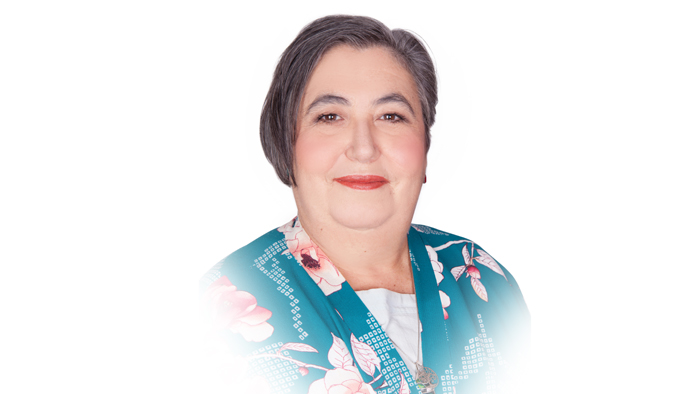
Dr Glenda Kruss is the Executive Head of the Centre for Science, Technology and Innovation Indicators (CeSTII) unit at the Human Sciences Research Council. She holds a Master’s degree at the University of Cape Town and obtained a DPhil from the University of Ulster in 1992.
Before joining the HSRC in June 2001, she was Associate Professor at the University of the Western Cape. Her areas of research interest include: higher education, innovation and development, exploring the issue of responsiveness to economic and social needs, and the contribution of the post-school sector to skills development strategies. She has collaborated widely on comparative projects with research teams in Africa, Latin America, Asia and Europe, and led large-scale projects for national government departments.
Kruss’s publication record spans the authoring and co-authoring of more than 40 conference presentations and 20 journal articles, as well as two books and a number of research monographs. Her most recent work, published in the Journal of Development Studies, investigated universities and knowledge-based development in sub-Saharan Africa.
Executive Head (AISA) – Dr Palesa Sekhejane (Acting)
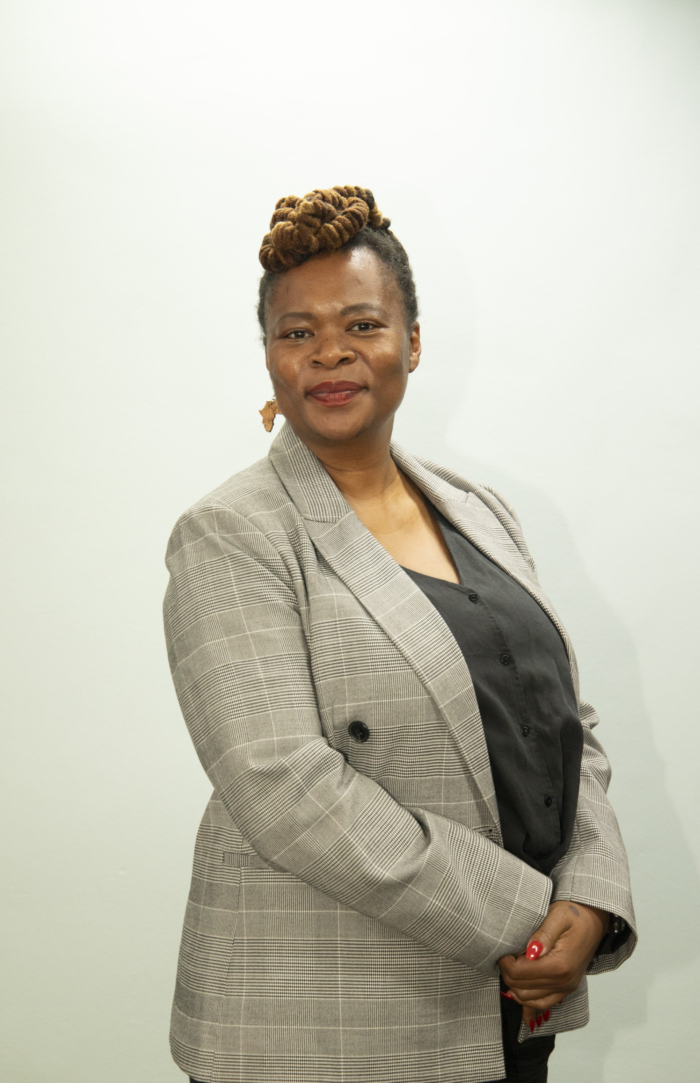
She is currently the Executive Head (interim) in the Human Sciences Research Council (HSRC), leading a Africa Focus research division – Africa Institute of South Africa (AISA). Dr Sekhejane continues to be the Director for Strategic Partnerships with special focus on Africa relations for delivering on continental strategies. Previously a Research Specialist in Africa Institute of South Africa within HSRC conducting research in health sciences, innovation and biomedical technology developments and policy relevant thematic areas in various African countries. She was recently appointed to serve in the EU platform through the Department of Science and Innovation, as well as the Science For Africa Foundation Africa Programme (POSSIBLE) decision committee. Dr Palesa Sekhejane holds health sciences’ Doctoral degree in Biomedical Technology, and specialised in Biophotonics, with advanced training from University of Illinois (USA). Dr Sekhejane serves in research ethics committee with special focus on biomedical oriented studies. Additionally, she is the chairperson of Gauteng’s Technical Committee War Room on Crime and Law Enforcement. Recently appointed in the UNESCO’s natural sciences committee, and She is a research associate at the University of Johannesburg in the Applied Sciences Research Unit, Faculty of Sciences. Former member of ECOSOCC of African Union on Women and Gender Cluster. Her interests are in health and sciences research and innovations, women and youth. Amongst her recent co-authored publications are “South Africa’s Vaccine Production Potential: Towards an Intra-BRICS Vaccine Production Framework” as well as “The Gauteng Province Trends in International Mathematics and Science Study (TIMSS) 2019 Grade 9 Results”
Group Executive (Shared Services) – Ms Lulekwa Ngcwabe

Ms. Lulekwa Ngcwabe is the Group Executive of the Shared Services Division. She holds a Bachelor of Administration from the former University of Transkei, which is now Walter Sisulu University, a Master of Business Administration (MBA) from the prestigious Gordon Institute of Business Science (GIBS), and a Postgraduate Diploma in Business Administration from the same institution.
She completed the Strategic HR Leadership Programme at Stellenbosch University Business School, the Programme in Business Leadership at the UNISA School of Business Leadership, and the Global Executive Development Programme at GIBS.
Ms. Ngcwabe has more than a decade of experience in senior management and joined the HSRC after serving as the Human Capital Executive at Air Traffic and Navigation Services (ATNS). Prior to that, she held the position of General Manager in charge of Corporate Services for the City of Johannesburg’s Metrobus. Prior to this, she held the position of Senior Executive Manager, Corporate Services, at the Road Traffic Infringement Agency (RTIA). Ms Ngcwabe exhibited her leadership abilities at RTIA by assisting in the formation of the Human Resources Management Division.
Ms Ngcwabe’s career trajectory is exemplary. She was appointed to senior positions in HR management at Eskom, the National Prosecuting Authority, the Eastern Cape Parks Board and the Eastern Cape Department of Sport, Arts, and Culture.
Chief Financial Officer (CFO) – Ms Jacomien Rousseau, CA(SA)

Ms Jacomien Rousseau is a highly astute and qualified Chartered Accountant with extensive experience as an Executive Manager, Chief Financial Officer, Financial Manager, Auditor & Business Manager. She has a proven success record in steering projects and operations in line with set organisational objectives and goals. A management all-rounder, with versatile management skills coupled with excellent communication, interpersonal and leadership skills, her strong ability lies in leading and managing people and business units in challenging and diverse environments. Ms Rousseau holds a B.Com (Honours) in Accounting Science, a Certificate in Auditing, APT and is registered with SAICA as a Chartered Accountant.
